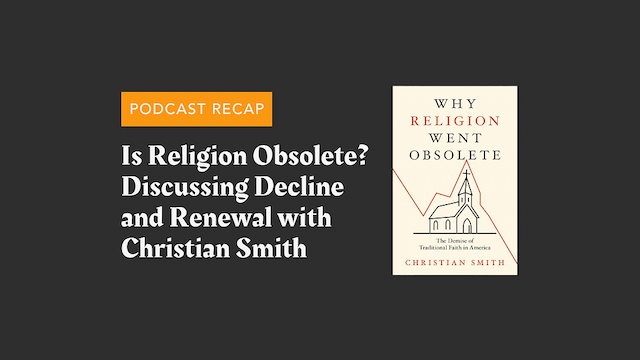Christmas: The Necessity of Christ's Coming


It’s the time of year for cookies, hot chocolate, eggnog, caroling, ugly Christmas sweaters, gift exchanges, and Christmas lights! Get-togethers with family and friends fill our schedules, and we may rarely have a chance to slow down and ponder the reason for Christmas.
What does the Bible say about the necessity of Christ’s coming? Why did he come? What made it necessary?
In the Beginning
God created the world and called it “very good” (Genesis 1:31). Humans dwelt in the presence of God without fear or shame. Yet Eve ate the fruit from the tree of The Knowledge of Good and Evil. She ate what God commanded her not to eat. Because of this one act of disobedience, Adam and Eve were banished from the garden and God’s presence. Humankind was cursed, forever to live at enmity with God and with a hatred for the things of God.
In the midst of this curse, God showed mercy to his creatures. Within God’s curse of the serpent, we read these words, “I will put enmity between you and the woman, and between your seed and her seed; he shall bruise you on the head, and you shall bruise him on the heel” (Genesis 3:15). This promised seed was the key for how man could be reconciled to God. This seed would be wounded on his “heel”, but the serpent would be completely destroyed. Sin would be banished forever.
Sin was the reason for our separation from God. But it would also bring him down to us.
The Gospel
God is holy, and holiness demands payment for our sins. Yet we cannot accomplish this on our own. Our “good works” only serve to condemn us further if we are not first made right with God. We need an intercessor.
So God, in all his goodness and mercy toward us, sent his son.
John Flavel, a prominent Puritan author and pastor, put this concept into words better than any other. He expounds upon the grace, mercy, and selflessness of Christ in his work titled The Father’s Bargain with the Son.
Father: My son, here is a company of poor miserable souls, that have utterly undone themselves, and now lie open to my justice! Justice demands satisfaction for them, or will satisfy itself in the eternal ruin of them: What shall be done for these souls?
Son: O my Father, such is my love to, and pity for them, that rather than they shall perish eternally, I will be responsible for them as their Surety; bring in all thy bills, that I may see what they owe thee; Lord, bring them all in, that there may be no after-reckonings with them; at my hand shalt thou require it. I will rather choose to suffer thy wrath than they should suffer it: upon me, my Father, upon me be all their debt.
Father: But, my Son, if thou undertake for them, thou must reckon to pay the last mite, expect no abatements; if I spare them, I will not spare thee.
Son: Content, Father, let it be so; charge it all upon me, I am able to discharge it: and though it prove a kind of undoing to me, though it impoverish all my riches, empty all my treasures, yet I am content to undertake it.
This is the reason for which Christ came—his deep pity and mercy towards us in our sinful state. Paul expounds upon this in the book of Ephesians. “But God, being rich in mercy, because of the great love with which he loved us, even when we were dead in our transgressions, made us alive together with Christ (by grace you have been saved)” (Ephesians 2:4-5).
A Future Hope
Take joy in the God of your salvation this Christmas, knowing that God saw you in your sinfulness and is delighted to provide the perfect Savior. His children can have restored fellowship with him. This is the story of the entire Bible.
Our sin is what makes Christ’s putting on flesh necessary. Without Christ’s first coming, there is no forgiveness of sin. In this act of God, we see his great mercy and grace towards us. This world that he cursed because of our sin will one day be made new. The people of God will dwell on this new earth—all because of Christ coming to earth as an infant. What a blessed hope Christmas gives — we who were lost are found and have a blessed future hope.
Brittany Proffitt lives in Dallas Texas and is a writer and content manager for So We Speak.











